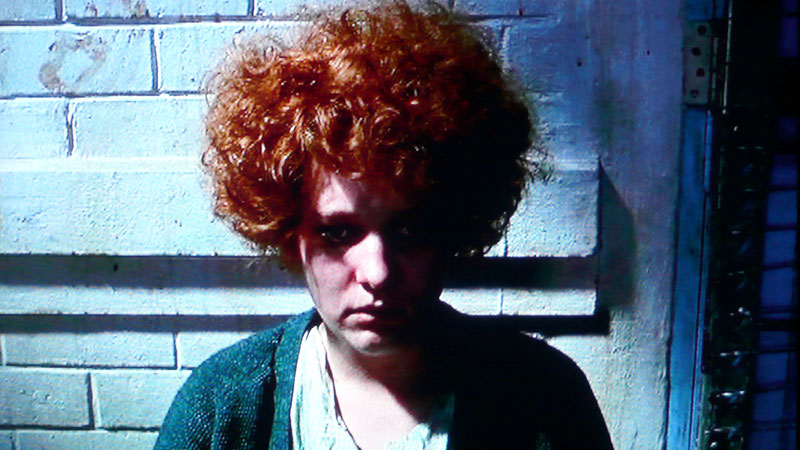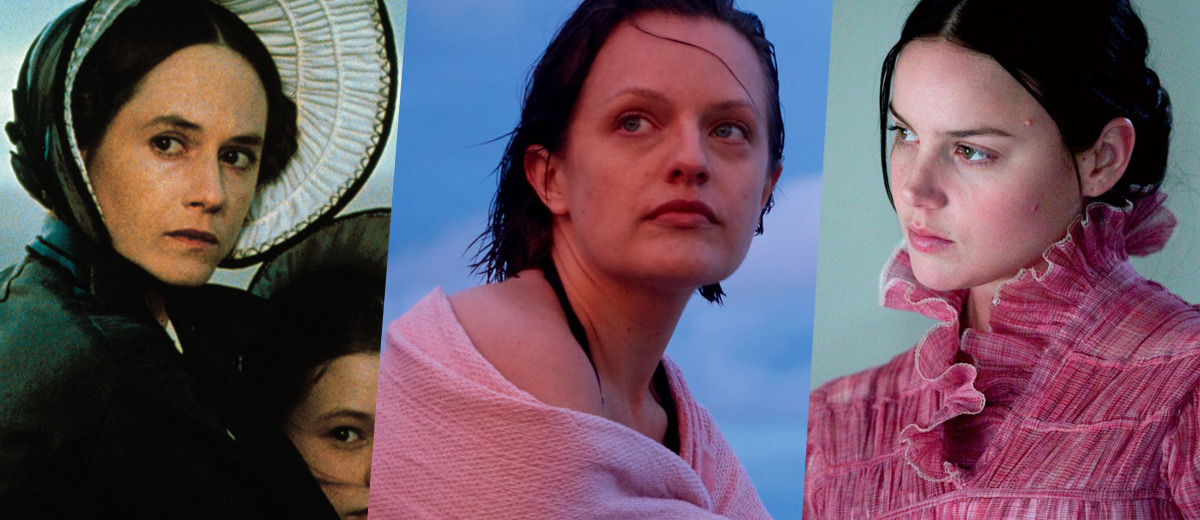What can we say about Jane Campion that we didn’t already say last week in lauding the venerable filmmaker’s feminist history? Simply put, the New Zealander is one of the greatest filmmakers in the world.
The first woman awarded the Palme d’Or at Cannes—for her Oscar-winning 1993 feature “The Piano”—and the second woman ever nominated for the Academy Award prize for Best Director, Campion’s indelible, revelatory career started in 1989 with her debut “Sweetie,” and it launched one of the most distinctive voices in cinema.
READ MORE: The Feminist History Of Jane Campion, From ‘Sweetie’ To ‘Top Of The Lake’
Lyrically expressive, marked by painterly cinematography, breathy and flush with emotional intelligence, Campion’s career has also been defined by complex depictions of women and sexuality.
For four decades, Campion has cultivated a career around brave female heroines in all sorts of milieus; the modern suspense thriller of “In The Cut,” famous literary adaptations (“An Angel at My Table,” “The Portrait of a Lady”), and gorgeously impressionistic, period piece romances (“Bright Star,” “The Piano”).
Lately, like many modern auteurs, Campion has moved into the filmmaker-friendly world of television, and the crime drama “Top Of The Lake,” once again features an irrepressible female lead. This time, centering on themes of trauma and grappling with motherhood.
Coinciding with the U.S. premiere of Campion’s much-anticipated series “Top of the Lake: China Girl” on SundanceTV which aired this weekend, the Film Society Of Lincoln Center put on a retrospective of Campion’s work that started September 8 and runs through September 18. It includes all her work including the made-for-TV drama/coming of age and friendship-unraveling tale “Two Friends” (which is great for completists, but honestly, something we decided to avoid here) and many, many of her early shorts. Campion appeared in person this weekend (An Evening with Jane Campion; you can read our report soon) and if you’re in New York, we encourage you to check out the rest of the presentation of her work. It’s high time we put together an essentials of Campion’s lovely cinema and while a little overdue, we thought this the perfect time to jump in and express affection for her rich and towering body of work.
 “Sweetie” (1989)
“Sweetie” (1989)
Some filmmakers struggle to establish a sense of individuality with their first film. Jane Campion, however, was most assuredly not among those uncertain artists. The proof is vivid, startlingly found within the strange, confounding and simply remarkable “Sweetie” – an acutely defined, starkly realized and profoundly unsettling debut if ever there was one. Maddening, wonderfully bewitching, peculiar, bleakly funny and richly heartbreaking, “Sweetie” is the kind of film that’s impossible to describe in full, and even harder to summarize in short. An alluring, electrifying watch that finds the bizarre and the beautiful in both the mundane and the mystifying, Campion’s alarming and vividly personal feature follows two differing Australian sisters – the mild-mannered, superstitious Kay (Karen Colston) and the loud, unbalanced Sweetie (Genevieve Lemon). They simultaneously struggle to find their sense of individuality and purpose in a world filled with defiant reason and inexplicable madness. It’s a thematic balance that even the most experienced filmmakers can’t always navigate, yet Campion — as a true testament to her growing talent — weaves the distinct threads into something equally relatable and unique. Some filmmakers need several films to find themselves. Some never find themselves at all. Campion, however, was as defined as they come from film one. – Will Ashton
 “An Angel at My Table” (1990)
“An Angel at My Table” (1990)
For the follow-up to her debut, “Sweetie,” Campion helmed Laura Jones’ adaptation of the trilogy of autobiographies by Janet Frame, one of New Zealand’s most famous, yet reclusive literary talents. The resulting film would hew closely to a realistic depiction of Frame’s psychological experiences in the 1940s and 1950s, whereby Frame was wrongfully misdiagnosed with schizophrenia, consigned to a mental hospital for eight years, and narrowly avoided a lobotomy. The film’s origin as a television mini-series corresponds with an episodic division into three sections, as well as possibly the film’s narrative treatment following a somewhat conventionally linear path akin to other ‘Great Artist’ biopics, from rural impoverishment to later-in-life acclaim and recognition. Nevertheless, in “An Angel at My Table,” Campion would establish a predominant theme for the rest of her oeuvre – compassion for the alienated and misunderstood, not to mention a focus on a brilliant female protagonist whose self-reliance is continually belittled and undermined by the men who orbit her life. Campion’s sympathetic touch for the material and Kerry Fox’s endearing and sweet performance as the adult Janet – gently encapsulating the character’s near-constant shyness – would propel the biopic to Venice as the first New Zealand film to ever play in competition and achieving a Special Jury Prize. – Alex MacKay





